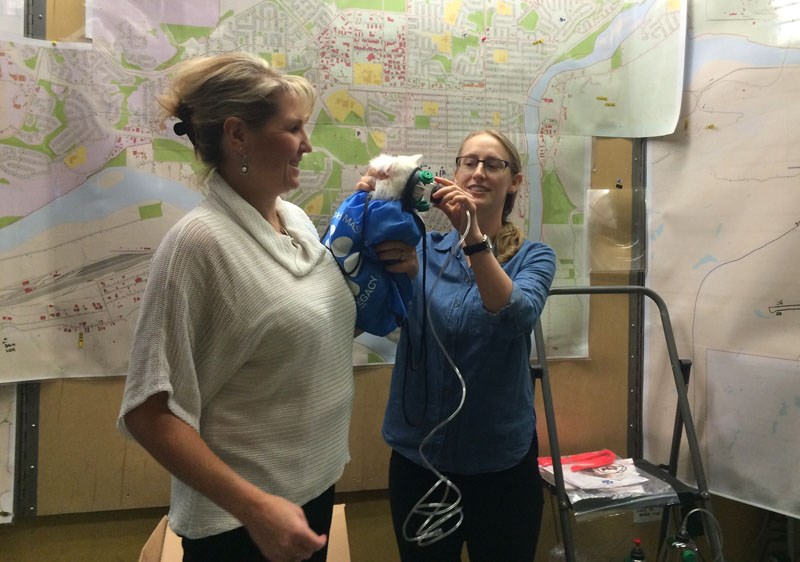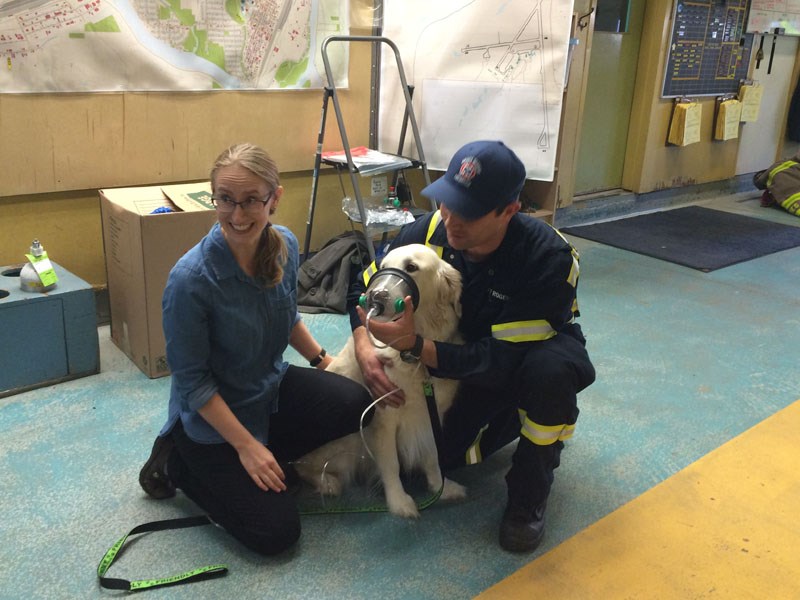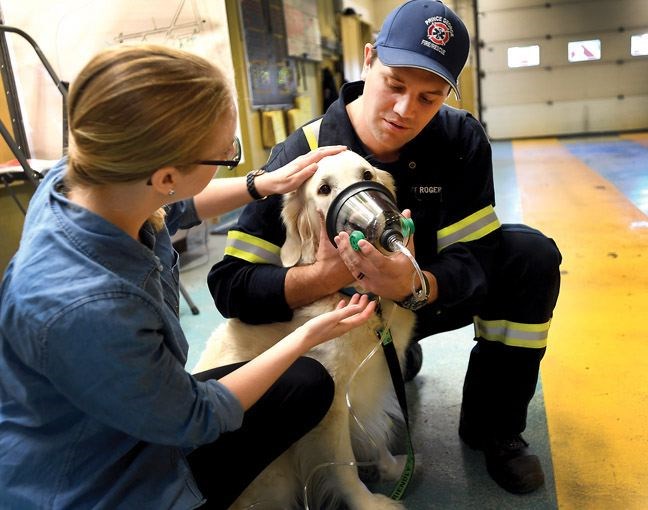Local animal lovers helped turn a tragedy into a better situation for Prince George pet owners, whose furry friends are safer thanks to new equipment.
On Wednesday morning, Prince George veterinarian Dr. Sara VanderKraan alongside local organizers presented 12 pet oxygen mask kits to the fire department.
Each kit comes with three reusable masks of different size, which can help ventilate a pet as small as a Guinea pig or bird up to a large dog.
"It's pretty straightforward," VanderKraan told the handful of men at the downtown fire station, watching as she pressed the clear mask to the face of a cooperative cat. "Little ones get a little mask and big ones get a big mask and just increase the oxygen accordingly."
For the more anxious patients, the kit also comes with a leash and a bag to put smaller pets in so firefighters can avoid being scratched.

The kits will supply 10 fire trucks with a couple to spare. They were part of several hundred kits purchased for 95 B.C. communities from a fundraiser that sought to save future pet lives after the deaths of seven dogs and two cats in a May fire in Burnaby.
Prince George trainer Kim Collins got immediately involved.
She's friends with the killed animals' owner, Dove Cresswell.
"They could have saved them if they had the masks," said Collins, who owns Pawsitive Steps. "Our agility community, especially in B.C., is pretty tight. It happened right before a really big event that we all were at. It was pretty tragic and hit all of us hard."
From there, the group fundraised at trials and beyond, eventually raising about $60,000, with Prince George adding about $2,000 to the provincial total.
"It just kind of took off."
VanderKraan said getting oxygen into the animals right away is a critical first step, especially since some won't show the signs of smoke inhalation for 24 hours.
"If they've already put in that fresh oxygen, we may see a huge decrease in the risk of death," said VanderKraan, adding it's a good temporary measure, but firefighters should still call the emergency hospital.
After watching VanderKraan's session, Jason McCarron said he expected the training to be seamless for the crews, which will be getting the kits "right away."
"I think it's great for the public. Your pet is part of your family. When you see part of your family in pain you want to be able to help them as much as you can. By having these tools it'll be another avenue for us to help out the public," said McCarron, who's been firefighting for 12 years.
While the cases are relatively rare, firefighters have had to use the human oxygen masks and in most cases "pets don't normally make it out of house fires," he said.
When the Prince George Humane Society heard about the "life-saving impact" of the masks, executive director Angela McLaren said it had to get involved.
"People don't realize what a difference this makes," said McLaren, who used to fight fires in Fort St. James and saw both types of cases: dogs dying in house fires and two puppies that were saved when given oxygen.
"This is life-changing for animals."
Treating a pet that's already received some first aid from the fire department is huge, said VanderKraan.

"We can already start treating them for smoke inhalation without being 10 steps back. They've already had that first critical 10 to 15 minutes taken care of," she said. "Just the fact that these guys are so interested in trying to make sure the pets are saved as well as everything else is such an amazing thing for us to see."
While she's had a few cases of death due to smoke inhalation or suffocation, it's still quite few. She thinks that's due to a "fast-acting" fire hall.
"I think we're very lucky with the fire hall we have in this region.... They've already saved countless lives of animals without us needing to do heroics," she said.
But one death is still too much.
"You never want to lose a patient. That's what you strive to do: prevent, prevent, prevent because. If you can prevent something from happening you don't have to worry about curing it... and an animal doesn't have to go through that trauma."



